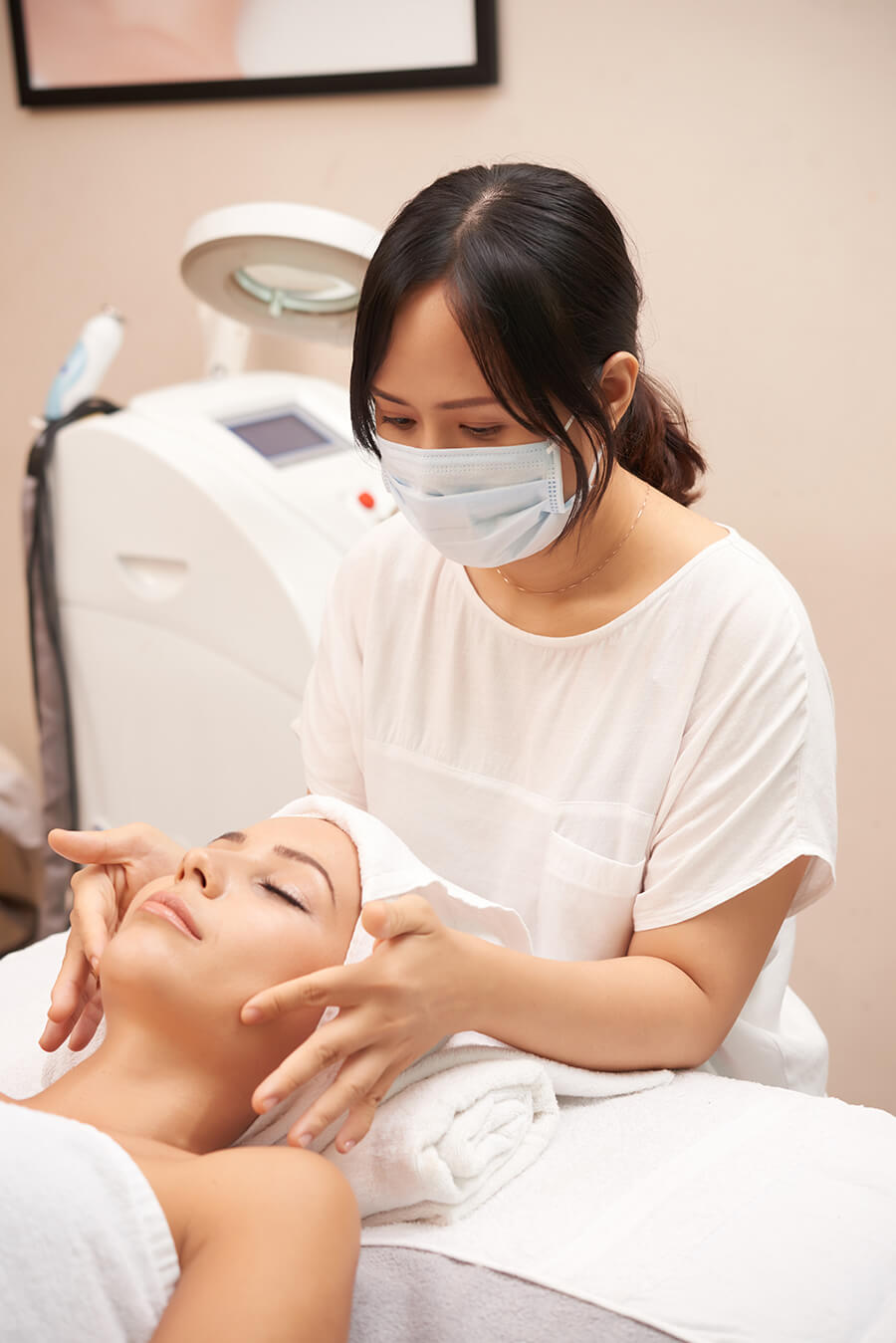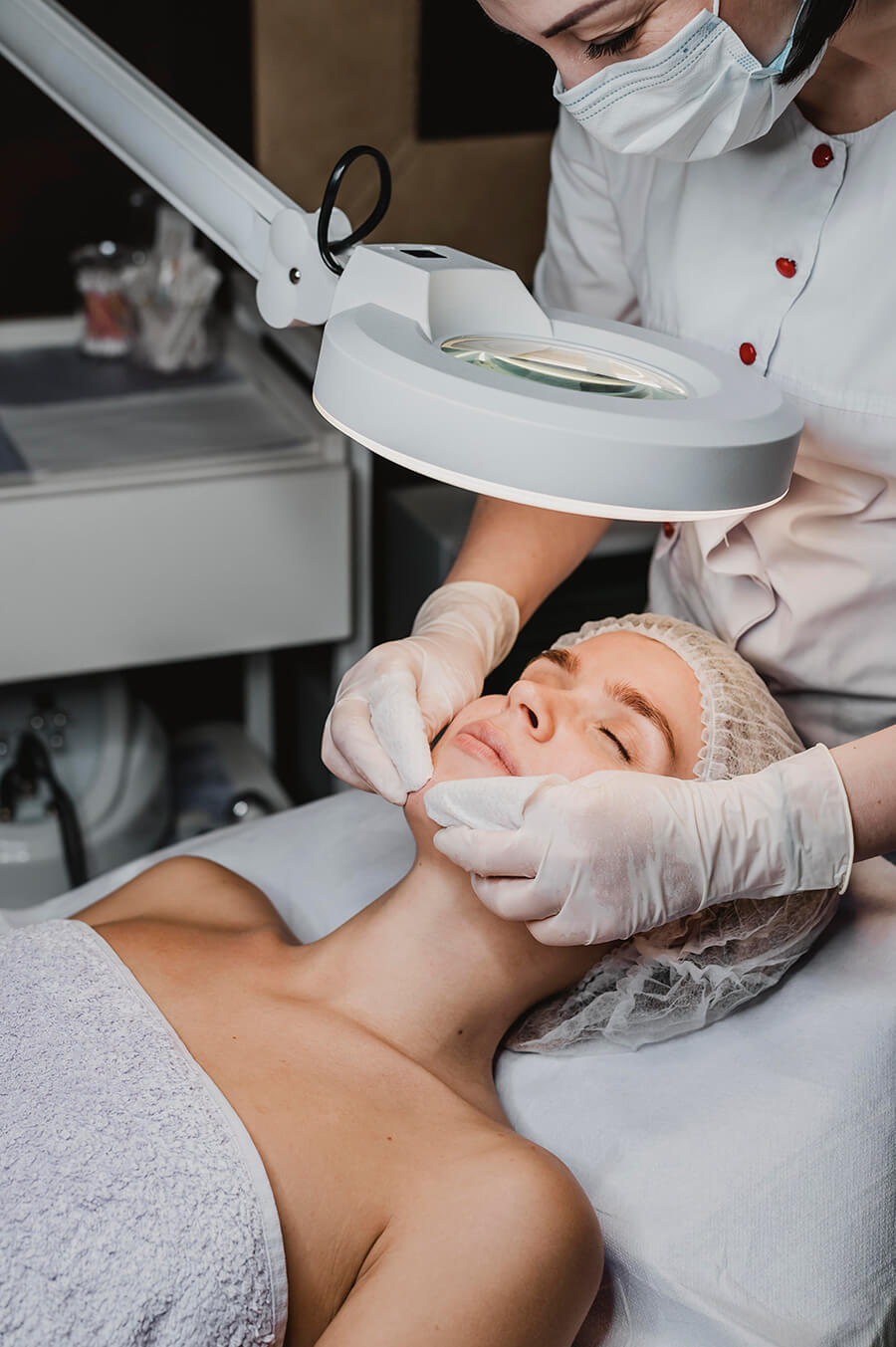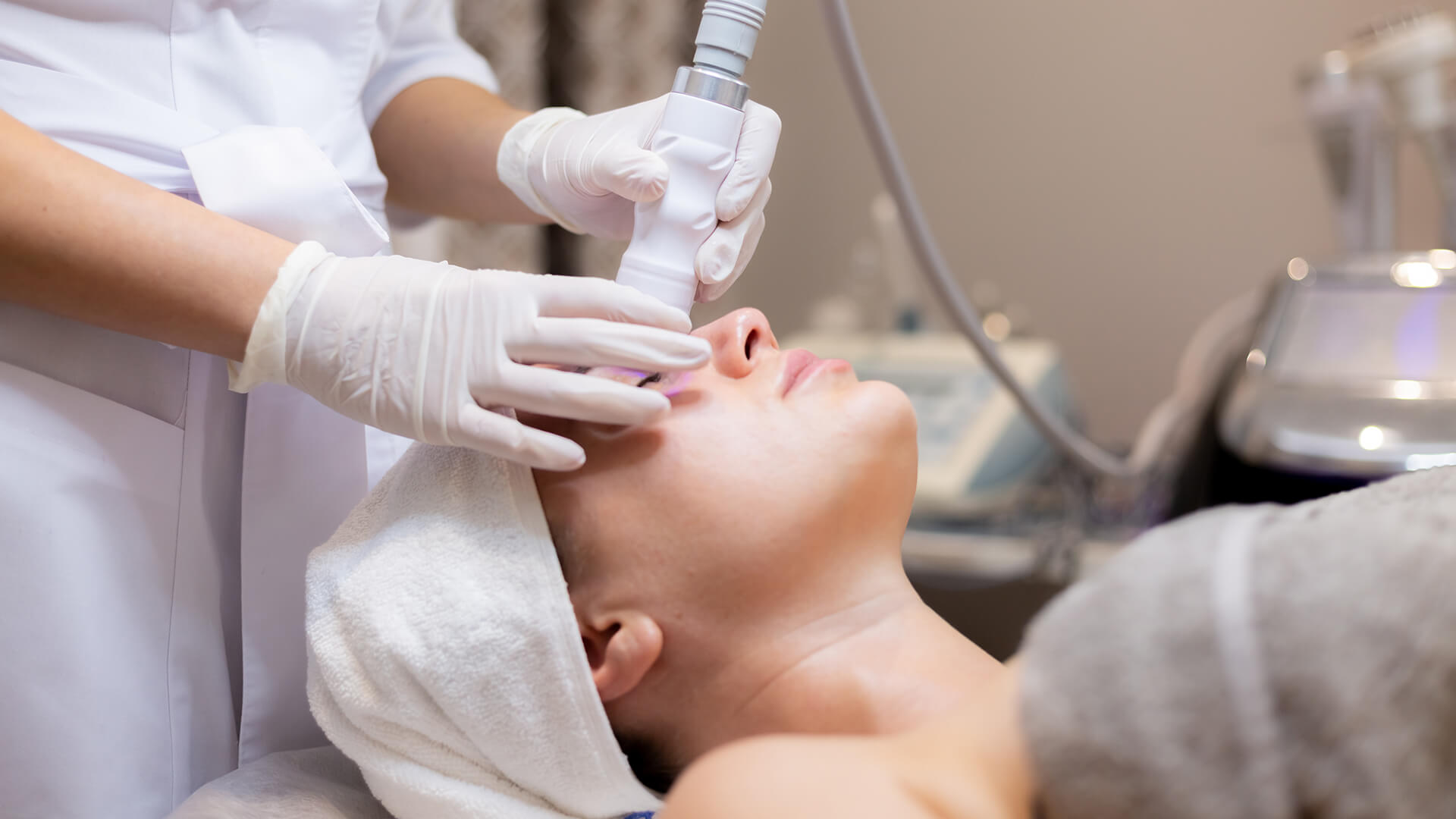BIOIDENTICAL HRT
BIOIDENTICAL HRT
Our bodies produce a wide array of hormones and their derivatives, all of which play a vital role in driving our daily lives. From feelings of hunger and fullness to joy, stress, and even the creation or breakdown of organs—hormones are involved in every step. In essence, hormones are life itself.
In youth, when hormone levels peak, we are at the height of our vitality—full of energy, able to work tirelessly, burn calories efficiently, enjoy radiant skin, sharp thinking, fast recovery, and rarely fall ill. But as we age, hormone levels decline, and with them, so does our quality of life. Fatigue sets in, the skin sags, fine lines deepen, muscles shrink, weight increases, and for women entering menopause, symptoms intensify—mood swings, heart issues, mental fog, osteoporosis, and vaginal dryness.
If we can restore those diminishing hormones to their youthful levels, we can essentially turn back the clock and reclaim a more vibrant, youthful version of ourselves.

bioidentical hormone
Bioidentical hormones are hormones that are exactly identical in structure to the natural hormones produced by the body, 100%. They can be either extracted from natural sources or synthesized. There are no known side effects associated with them.
What is Bioidentical Hormone?
Bio = Biological (from nature)
Identical = Exactly the same
Hormone = Hormone
Bioidentical Hormone = A hormone that is identical to the natural hormone in the body.
Bioidentical Hormone Replacement Therapy (BHRT) = The use of bioidentical hormones as a replacement therapy.
Hormones in our body are natural hormones. Most commonly used hormones in hospitals, such as birth control pills or menopausal hormone treatments, are synthetic hormones designed to resemble natural hormones. These synthetic hormones are often much stronger than natural hormones, leading to severe side effects such as facial swelling, acne, weight gain, osteoporosis, blood thickening, blood clots, or even heart disease. However, some people intentionally use synthetic hormones for desired side effects, such as breast enlargement or smoother skin.
In contrast, Bioidentical Hormones are 100% identical to the natural hormones in our body. They are available in both natural and synthetic forms. Due to their identical structure, they function exactly like the natural hormones in the body, without the severe side effects commonly associated with synthetic hormones.

Sex Hormone
At the age of 35, sex hormones, including Estrogen, Progesterone, and Testosterone, start to decline in both women and men.
Sex Hormones
The peak of hormone levels occurs during adolescence, and by the age of around 25, the first hormone starts to decline (no, you’re not mistaken—by just 25, we’re already aging!). The first hormone to decline is Growth Hormone. By the time we reach 30, Growth Hormone levels are noticeably low, and not long after, by the age of 35, our bodies can no longer stimulate the production of Growth Hormone. It is also at 35 that sex hormones, such as Estrogen, Progesterone, and Testosterone, in both men and women, begin to decline.
It becomes clear that we start to age from around the age of 25. Therefore, after the age of 25, we should focus on maintaining and nurturing our health, and we may also consider using bioidentical hormones to restore our well-being.
However!
Before using bioidentical sex hormones as replacements, it is essential to first check your hormone levels. This will allow you to adjust the appropriate amount of hormones to use accurately. The important thing is that it must be done under the supervision of a physician, with regular monitoring and adjustments to the hormone dosage as needed.
Hormone testing can be done in various ways. The most common method is blood testing, which should be done in the morning, ideally between 08:00-09:00 AM, for the most accurate results. However, the best method for testing hormone levels is through saliva testing. In general, saliva testing is sent abroad, making it less common in Thailand. The good news is that Medtopia now offers hormone testing through saliva under its Alternate Laboratory department. They have successfully imported this testing technology to Thailand. You can now have your saliva hormone levels tested locally at a much lower price (2-3 times cheaper) than sending samples abroad, with results available within just one week!

Stress Hormone
When there is stress, the body needs to use two main hormones to manage it: stress hormone (Cortisol) and anti-stress hormone (DHEA).
Stress Hormone
When talking about stress, people often think of psychological stress, such as financial problems, work, home life, or family issues. However, stress isn’t limited to just these factors. There are also subconscious stresses, such as watching violent shows, political news, traffic jams, challenging work, body stress like skipping breakfast, staying up late, constipation, tooth decay, accumulated toxins, chronic diseases, and much more. These often go unnoticed and are not properly managed, leading to hidden, accumulated stress.
When we experience stress, the body needs two main hormones to manage it: stress hormone (Cortisol) and anti-stress hormone (DHEA).
Cortisol is a hormone produced by the adrenal glands, with cholesterol as its precursor. It helps provide the energy needed to fight the stresses in our lives. Normally, the body produces the most cortisol in the morning, helping us wake up, feel refreshed, and be energized for the day ahead. However, if we accumulate stress over time, the adrenal glands release too much cortisol, which can have harmful effects. Cortisol triggers excessive breakdown of the body, leading to premature aging. It’s like using up your life energy for the future. Eventually, when the body is completely drained, the adrenal glands have to rely on other hormones—such as DHEA (anti-stress hormone), sex hormones (Estrogen, Progesterone, Testosterone)—to make cortisol, depleting them completely. This leads to a state of hormonal deficiency, causing the body to feel fatigued, and systems in the body begin to malfunction. This is called adrenal fatigue.
Some people, when experiencing adrenal fatigue, will notice irregular hormone production. Cortisol, which should be highest in the morning and low in the evening, might be reversed—higher in the evening and very low in the morning. This can lead to feelings of extreme fatigue upon waking, difficulty getting out of bed, a lack of appetite for breakfast, dizziness upon standing, cravings for sweets or salty snacks in the afternoon, sleepiness after meals, difficulty working, and the need for a nap. However, late at night, they may have trouble sleeping because cortisol levels rise, and this imbalance could also affect menstrual cycles and cause allergies to flare up.
To diagnose adrenal fatigue, it’s essential to check all relevant hormone levels, including DHEA, Estrogen, Progesterone, Bioavailable Testosterone, Thyroid function test in blood or saliva, and Cortisol levels at four different times during the day (morning, afternoon, evening, and before bedtime) to assess the cortisol secretion pattern and determine if it aligns with natural circadian rhythms.
Once the pattern and amount of hormone secretion are fully understood, doctors can help choose the appropriate bioidentical hormones for each individual’s condition and plan the correct timing, duration, and dosage for hormone replacement therapy. This ensures the safe and effective use of bioidentical hormones to maximize their benefits.

Melatonin
If melatonin levels are sufficient and released at the right time, it can help us fall asleep more easily, sleep longer, and enjoy better quality sleep.
Melatonin
Melatonin is a hormone produced by the pineal gland, which is secreted in the absence of light during the night. Typically, melatonin starts being secreted in small amounts around 8:00 PM, with an increase in secretion between 9:00-10:00 PM. The pineal gland gradually reduces melatonin secretion starting around 2:00 AM. The melatonin hormone stays in the body for about 12 hours and gradually dissipates in the morning along with the sunrise.
Melatonin plays a crucial role in regulating the body’s circadian rhythm, which governs the functioning of various systems throughout the day. It directly controls sleep, and when melatonin levels are sufficiently high at the right time, it helps us fall asleep more easily, sleep longer, and experience better quality sleep.
In addition to regulating sleep, melatonin also helps scavenge free radicals, reduce inflammation within the body, improve immune function, reduce cell mutation, slow down bone loss, and research has shown that long-term use of melatonin can reduce the risk of Alzheimer’s disease and other neurodegenerative conditions caused by the ApoE4 genetic mutation.
There are various forms of melatonin available, including oral tablets, sublingual tablets, sublingual sprays, and topical creams. The most commonly available form, but with the lowest effectiveness, is the oral tablet. The most effective form, requiring a smaller amount of the hormone, but harder to find, is the sublingual tablet.

Pregnenolone
Pregnenolone is the first hormone that the body produces. Using just a small amount of Pregnenolone can help reduce adrenal fatigue.
Pregnenolone (Hormone for Adrenal and Brain Support)
Pregnenolone is the first hormone produced by the body from cholesterol in the adrenal glands, and it can be converted into other hormones. Therefore, supplementing with Pregnenolone can help nourish the adrenal glands and enhance the production of other hormones, including stress hormones (Cortisol), anti-stress hormones (DHEA), sex hormones (Estrogen, Progesterone, Testosterone, DHT), and hormones that regulate blood pressure and water excretion in the kidneys (Aldosterone).
Using a small amount of Pregnenolone can help reduce adrenal fatigue. When used in higher doses for more than 12 weeks, it can improve memory and reduce joint pain from arthritis. However, since Pregnenolone is processed by the liver, it should not be used in high doses by individuals with liver conditions, and liver function should be monitored periodically.


-
Suitable for children aged 5–15 years
-
Suitable for young working adults
-
Suitable for seniors and those in menopause

 ไทย
ไทย

















